第100章 OF THOSE THINGS THAT WEAKEN(5)
Hitherto I have named such diseases of a Commonwealth as are of the greatest and most present danger.There be other,not so great,which nevertheless are not unfit to be observed.As first,the difficulty of raising money for the necessary uses of the Commonwealth,especially in the approach of war.This difficulty ariseth from the opinion that every subject hath of a propriety in his lands and goods exclusive of the sovereign's right to the use of the same.From whence it cometh to pass that the sovereign power,which foreseeth the necessities and dangers of the Commonwealth,finding the passage of money to the public treasury obstructed by the tenacity of the people,whereas it ought to extend itself,to encounter and prevent such dangers in their beginnings,contracteth itself as long as it can,and when it cannot longer,struggles with the people by stratagems of law to obtain little sums,which,not sufficing,he is fain at last violently to open the way for present supply or perish;and,being put often to these extremities,at last reduceth the people to their due temper,or else the Commonwealth must perish.Insomuch as we may compare this distemper very aptly to an ague;wherein,the fleshy parts being congealed,or by venomous matter obstructed,the veins which by their natural course empty themselves into the heart,are not (as they ought to be)supplied from the arteries,whereby there succeedeth at first a cold contraction and trembling of the limbs;and afterwards a hot and strong endeavour of the heart to force a passage for the blood;and before it can do that,contenteth itself with the small refreshments of such things as cool for a time,till,if nature be strong enough,it break at last the contumacy of the parts obstructed,and dissipateth the venom into sweat;or,if nature be too weak,the patient dieth.
Again,there is sometimes in a Commonwealth a disease which resembleth the pleurisy;and that is when the treasury of the Commonwealth,flowing out of its due course,is gathered together in too much abundance in one or a few private men,by monopolies or by farms of the public revenues;in the same manner as the blood in a pleurisy,getting into the membrane of the breast,breedeth there an inflammation,accompanied with a fever and painful stitches.
Also,the popularity of a potent subject,unless the Commonwealth have very good caution of his fidelity,is a dangerous disease;because the people,which should receive their motion from the authority of the sovereign,by the flattery and by the reputation of an ambitious man,are drawn away from their obedience to the laws to follow a man of whose virtues and designs they have no knowledge.
And this is commonly of more danger in a popular government than in a monarchy,because an army is of so great force and multitude as it may easily be made believe they are the people.By this means it was that Julius Caesar,who was set up by the people against the senate,having won to himself the affections of his army,made himself master both of senate and people.And this proceeding of popular and ambitious men is plain rebellion,and may be resembled to the effects of witchcraft.
Another infirmity of a Commonwealth is the immoderate greatness of a town,when it is able to furnish out of its own circuit the number and expense of a great army;as also the great number of corporations,which are as it were many lesser Commonwealths in the bowels of a greater,like worms in the entrails of a natural man.To may be added,liberty of disputing against absolute power by pretenders to political prudence;which though bred for the most part in the lees of the people,yet animated by false doctrines are perpetually meddling with the fundamental laws,to the molestation of the Commonwealth,like the little worms which physicians call ascarides.
We may further add the insatiable appetite,or bulimia,of enlarging dominion,with the incurable wounds thereby many times received from the enemy;and the wens,of ununited conquests,which are many times a burden,and with less danger lost than kept;as also the lethargy of ease,and consumption of riot and vain expense.
Lastly,when in a war,foreign or intestine,the enemies get a final victory,so as,the forces of the Commonwealth keeping the field no longer,there is no further protection of subjects in their loyalty,then is the Commonwealth dissolved,and every man at liberty to protect himself by such courses as his own discretion shall suggest unto him.For the sovereign is the public soul,giving life and motion to the Commonwealth,which expiring,the members are governed by it no more than the carcass of a man by his departed,though immortal,soul.
For though the right of a sovereign monarch cannot be extinguished by the act of another,yet the obligation of the members may.For he that wants protection may seek it anywhere;and,when he hath it,is obliged (without fraudulent pretence of having submitted himself out of fear)to protect his protection as long as he is able.But when the power of an assembly is once suppressed,the right of the same perisheth utterly,because the assembly itself is extinct;and consequently,there is no possibility for sovereignty to re-enter.